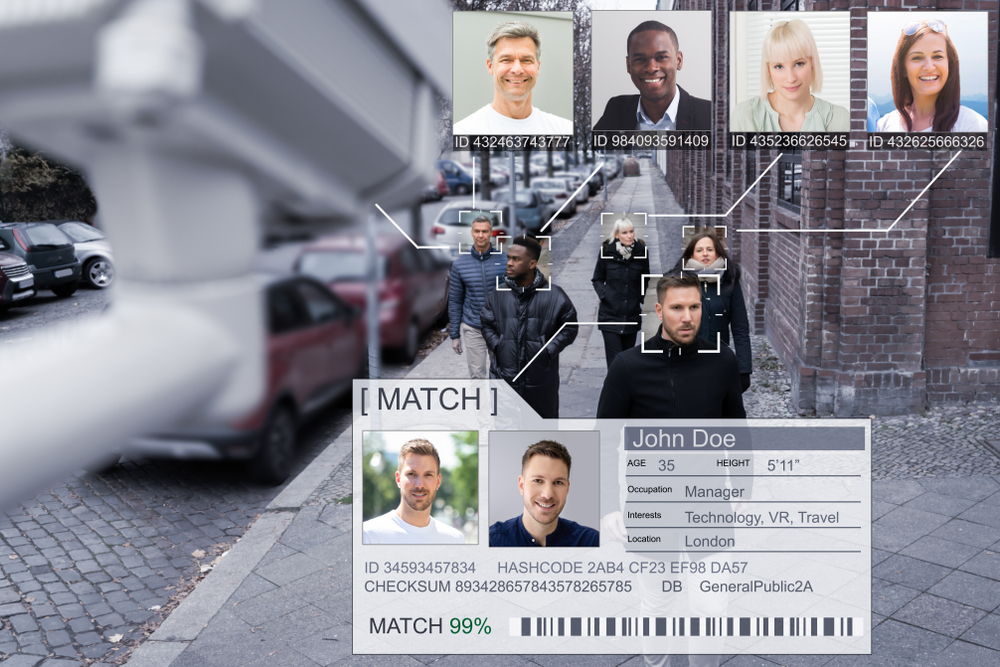Facial recognition tech used by UK police "breaches privacy"
Civil rights group Liberty has told the court of appeals that these systems are racially biased and contradict data protection laws


Automated facial recognition (AFR) systems will "radically" alter the way the UK is policed, a court of appeals has been told.
Lawyers for civil rights group Liberty have argued that these systems are racially biased and contradict data protection laws, according to The Guardian.
The legal challenge concerns the use of facial recognition by the South Wales Police to conduct mass surveillance. Despite concerns that the technology showed signs of racial bias and repeatedly produced inaccurate results, the force reportedly captured 500,000 images during public trials in 2018.
In particular, Cardiff resident Ed Bridges was scanned while out Christmas shopping. In September 2019, a judicial review sided with the South Wales Police, but Liberty, which represents Bridges, has brought the case to the court of appeals.
"If AFR is rolled out nationally, it will change radically the way that Britain is policed," Dan Squires QC said in a submission to the court. "Connected to a database with the right information, AFR could be used to identify very large numbers of people in a given place at a given time - for example, those present at a protest that the police are monitoring.
"Given the proliferation of databases operated by the police and other public authorities, the exponential increase in information held by public bodies and the ever-increasing practice of sharing that information between public bodies, it is not difficult to imagine that police forces nationally could soon - if they cannot already - have access to photographs of the vast majority of the population."
The legal challenge comes just weeks after a number of tech companies announced plans to either ditch or suspend facial recognition services in light of the black lives matter protests.
Get the ITPro daily newsletter
Sign up today and you will receive a free copy of our Future Focus 2025 report - the leading guidance on AI, cybersecurity and other IT challenges as per 700+ senior executives
At the same time, a collective of more than 1,000 researchers, academics and experts in the field of artificial intelligence (AI) have penned an open letter to protest a research paper in Springer that claims to use neural networks to "predict criminality".
"This upcoming publication warrants a collective response because it is emblematic of a larger body of computational research that claims to identify or predict "criminality" using biometric and/or criminal legal data," the open letter read.
"Such claims are based on unsound scientific premises, research, and methods, which numerous studies spanning our respective disciplines have debunked over the years."
Bobby Hellard is ITPro's Reviews Editor and has worked on CloudPro and ChannelPro since 2018. In his time at ITPro, Bobby has covered stories for all the major technology companies, such as Apple, Microsoft, Amazon and Facebook, and regularly attends industry-leading events such as AWS Re:Invent and Google Cloud Next.
Bobby mainly covers hardware reviews, but you will also recognize him as the face of many of our video reviews of laptops and smartphones.
-
 Cleo attack victim list grows as Hertz confirms customer data stolen
Cleo attack victim list grows as Hertz confirms customer data stolenNews Hertz has confirmed it suffered a data breach as a result of the Cleo zero-day vulnerability in late 2024, with the car rental giant warning that customer data was stolen.
By Ross Kelly
-
 Lateral moves in tech: Why leaders should support employee mobility
Lateral moves in tech: Why leaders should support employee mobilityIn-depth Encouraging staff to switch roles can have long-term benefits for skills in the tech sector
By Keri Allan